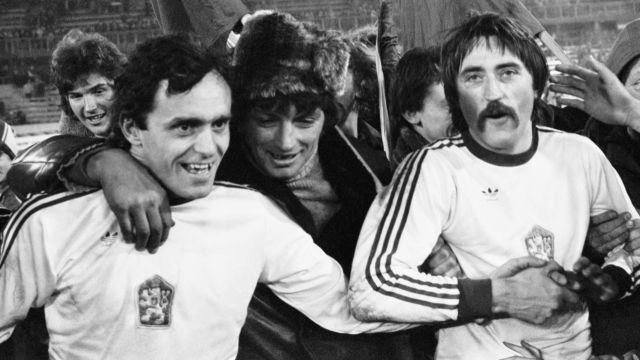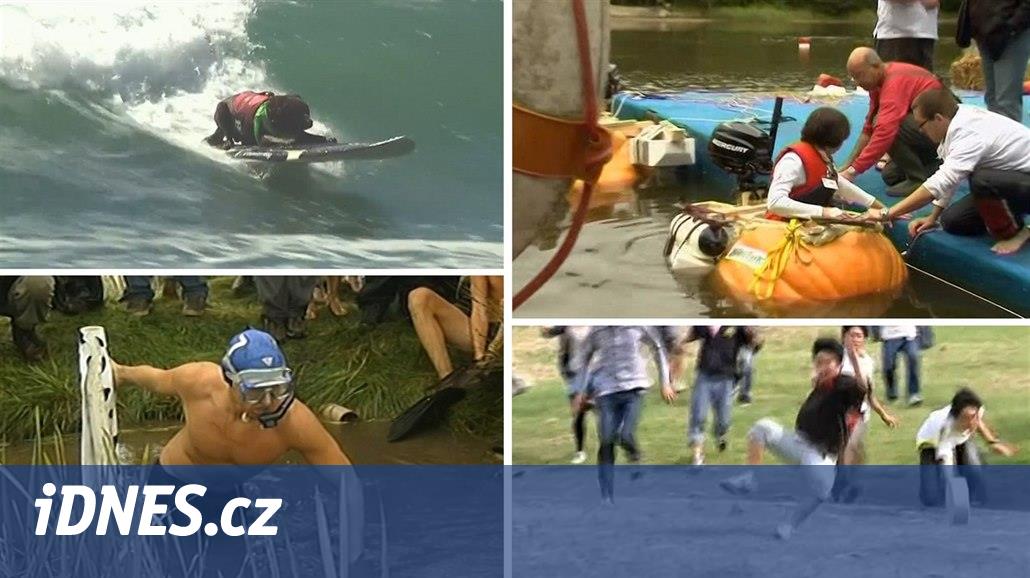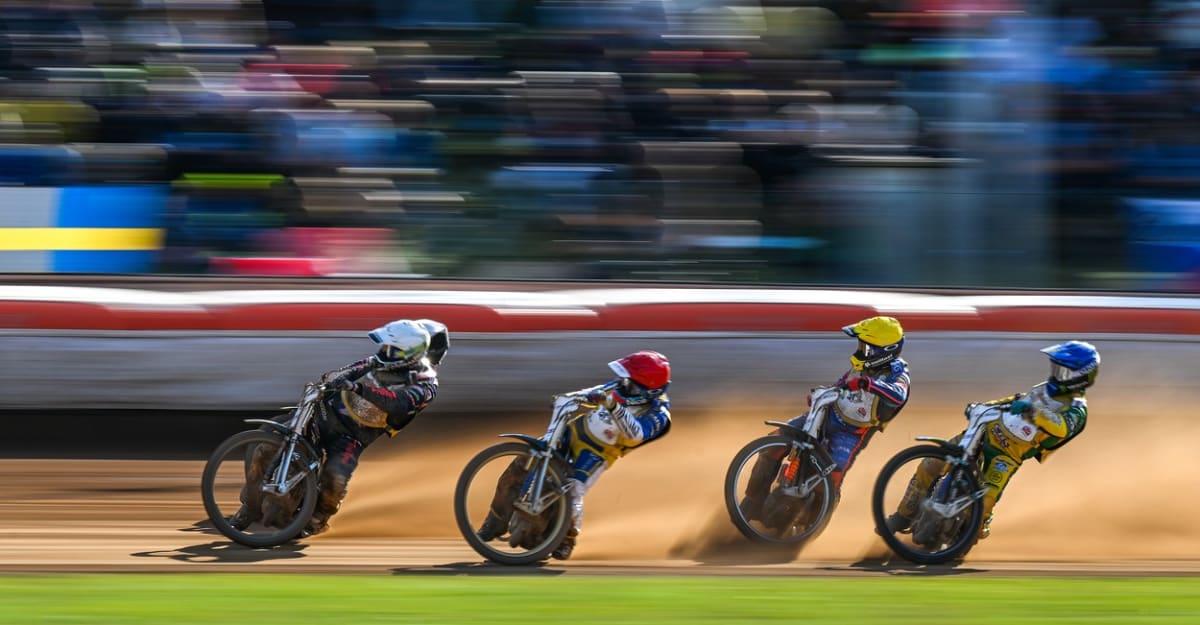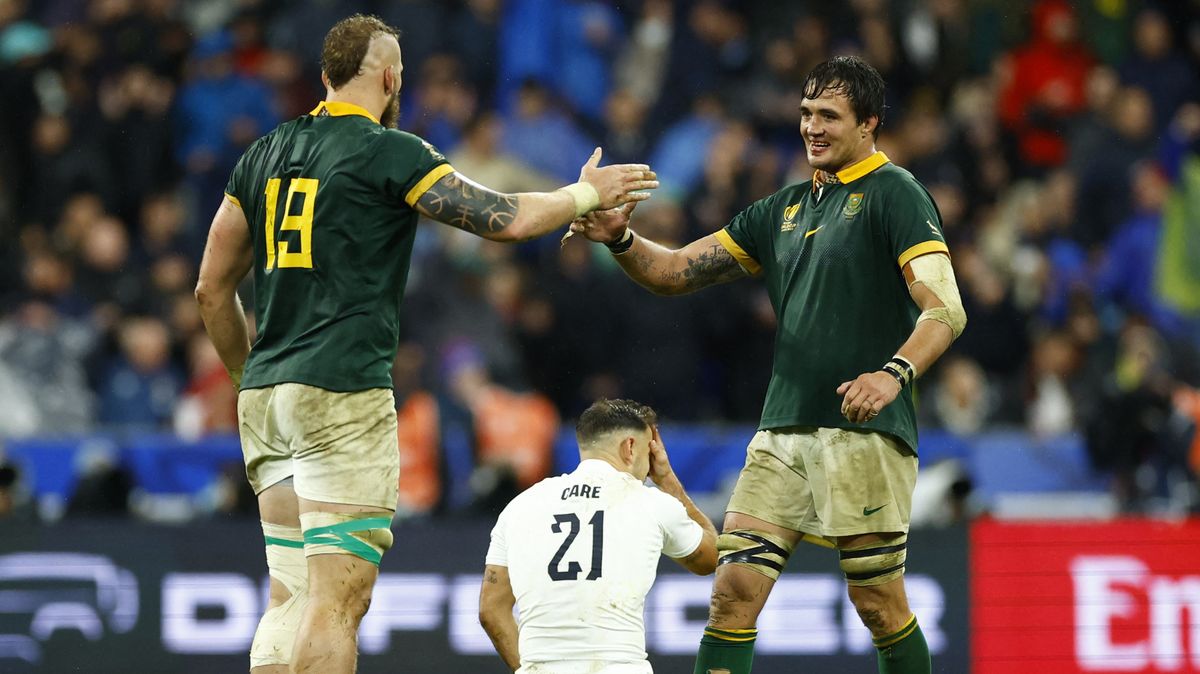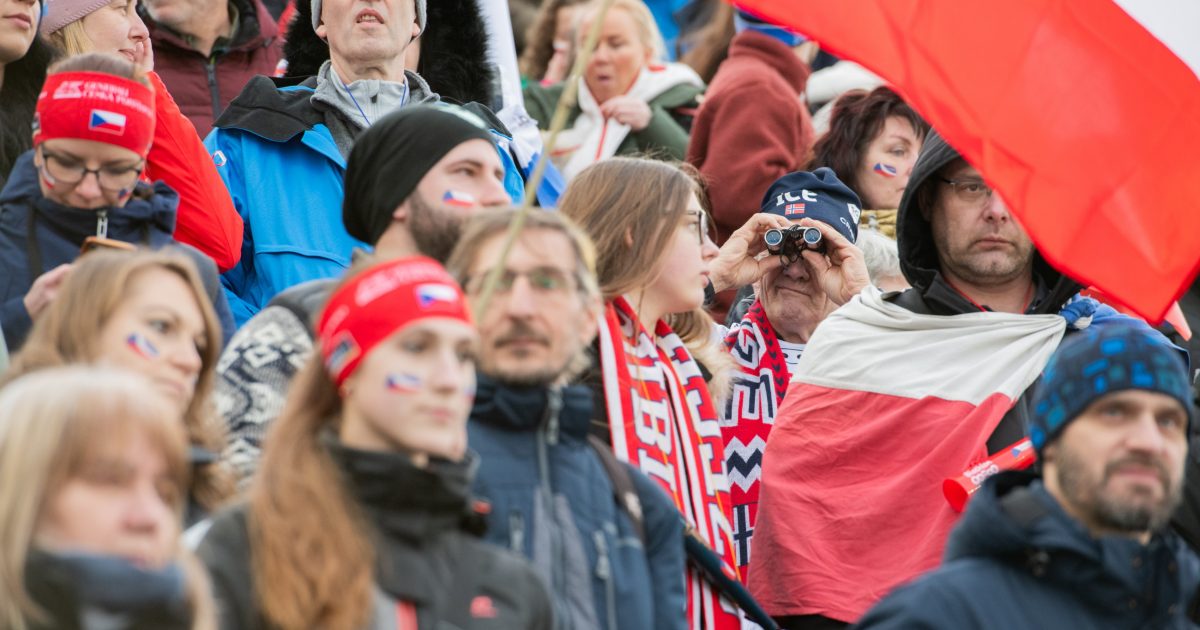At the beginning of May, a meeting was held in Kroměříž of the league’s top scorers, that is, players who scored about a hundred goals in the Czechoslovakian league, as well as abroad and after the division of the federation into separate high-level competitions. The meeting was also honored by famous Slovak shooters who wrote the history of the common state.
Fans remember how Stanislav Griga shone in the Spartan jersey, or how Slovakian strikers Dušan Galis and Ladislav Petráš crushed the defenses of Czech teams. They were also named after one of the most famous football players in the Tatra region. “Where is Marián Masný, our favorite Béla, European champion in 1976?” they asked.
It’s still true that he tends to avoid people, but it’s not as bad as a few years ago when he avoided everything and everyone.
Of course, he got the invitation and a bus was sent from Bratislava, where he lives, to the Moravian city. “We were very interested in his coming,” said Jaroslav Kolář, one of the main organizers of the event, member of the Czech Football Association’s history and statistics committee. “However, the director of the Slovak Artillery Club, Tomáš Medveď, told us that it would be difficult, that Béla does not go anywhere and avoids people,” replied, which did not give the member much hope. of the Yugoslav Golden Party. would happen.
He didn’t arrive and no one on the Slovak side was surprised.
Prisoner of the Petržalsk housing estate
In May, another big party took place in Petržalka, a district of Bratislava, at the House of Culture Zrkadlový háj, also financially supported by the local council. The more than 100-year-old football club FC Petržalka, which played in the Federal League under the name ZŤS (závody štojného sojárstva) named the book Za Starým mostom, written by historian and columnist Juraj Červinka.
Football legends on the News List
Perhaps the biggest decoration was the presence of Slovan legend Marián Masné, a legend from Slovan Bratislava, who also played for Petržalka at the end of his career. However, he didn’t let the spotlight shine on him, he didn’t take the stage and he didn’t drink to his success. “He just blinked and left immediately,” revealed goalkeeper Alexander Vencel Sr., a team-mate for Slovan and the Czechoslovakian national team.
But he came and it was already something! “It’s still true that he tends to avoid people, but it’s not as terrible as it was a few years ago when he avoided everything and everyone,” says Tomáš Černák, who describes the spell. legendary players from Slovan Bratislava in the book edition. . “Sometimes he shows up when called, but that’s about it,” he adds.
It’s no secret that he lived on the streets as homeless for several years, but that’s no longer the case either. His son Marián, who also played football, offered him a small apartment in the Petržalka building, where the pensioner, who will turn 72 in mid-August, now lives.
Far from any action.
Even his brother didn’t know
But it was much worse before. One of Europe’s finest strikers, who was offered a lucrative contract by Greek giants Olympiakos Piraeus in 1982, but the football association committee’s party group wouldn’t let him go to abroad due to poor results at the World Cup in Spain, avoided people, society, would have slept under a canopy on a Danube river navigation.
No one really knew him. Even his own brother Vojtěch, twelve years his senior, a silver medalist at the 1964 Summer Olympics in Tokyo, after which he received the nickname Béla, had no idea where he was staying. “If you meet him, tell me,” he urged the citizens of Bratislava.
It was nothing worthwhile. Masný didn’t go anywhere, he wasn’t interested in anything, he didn’t respond to invitations to football events, even though they reached him.
He was employed by the owner of Slovan
Anyone can fall to their knees, the important thing is that they can get up. And his friends give him a hand. The most dedicated is undoubtedly his attacking teammate from Slovan Bratislava and the Czechoslovak national team, also European champion in 1976, Ján Švehlík. He was looking for a place where he could. And not just him.
In 2004, Masný worked for about a year as a youth coach at the Academy of Jozef Vengloš, assistant coach to Václav Ježek in the Belgrade triumph. However, he did not have the necessary qualifications and when offered another job, he preferred to leave.
Ultimately, the Slovan legend was taken care of by club owner, businessman Ivan Kmotrík, who employed him at his company Grafobal as a doorman, later Masný transferred to custody of security. Sometimes someone visited him, mainly Švehlík, and they remembered old times. He got up from the street, slept in an inn.
In December 2017, Bratislava Football Association president Juraj Jánošík asked him to ceremonially hand over the organization’s memorial to him. “It was not easy to reach him, we couldn’t reach him, we had to know when he would be on duty,” says Černák, who also took part in the visit.
The meeting was short. However, Vousatý Masný leafed through the book with interest and remembered the glorious times.
He quit his job a few years ago and received a well-deserved old-age pension, which he spends most of the time alone in an apartment in Petržal. He was able to enjoy what he was able to do, he is one of the greatest treasures of football in the Czechoslovakian federation. He chose loneliness and social isolation.
For those who knew him in top form, a strange decision.
own choice
In his active career, he did not push himself at all costs, he did not draw attention to himself, but he also did not spoil the fun. A friendly, cheerful guy who didn’t sit in the corner of the locker room and stare at the floor. “Marian was comfortable, he didn’t stand out from the team in any way, he lived with us, lived through all the victories and all the failures,” recalls Zdeněk Nehoda, a colleague in the golden attack of the 1976 European Championship.
They have been through a lot together. “You can’t say we were strictly friends, he was much closer to Janko Švehlík, with whom he played for Slovan Bratislava,” recalls the player’s current agent. “But I never thought it would disappear so much and completely disappear from consciousness for a long time,” Nehoda marvels. “It was completely unthinkable for that to happen,” he adds.
They worked together in the Czechoslovak national team for eight years, won European Championship gold in 1976, European Championship bronze in 1980 and caught the discontent of political powers after the championship failed 1982 World Cup in Spain. “In 1983, I went to Darmstadt, Germany, and Marián was allowed to earn a few shillings in Neusiedl, Austria,” he recalled, adding that part of the “punishment” was a level foreign engagement. inferior. “I haven’t seen him since…”

“Extreme gamer. Food geek. Internet buff. Alcohol expert. Passionate music specialist. Beeraholic. Incurable coffee fan.”

